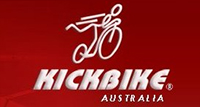Footbike World Championships – Rules
World Championships take place every 2 years.
IKSA World Ranking points will apply for all competitors’ results as per IKSA rules.
For each Championship element, a World title is given to the winner per gender and age category:
- World Champion Sprint (400m)
- World Champion Time trial (10km)
- World Champion Endurance (42.195km Marathon)
- World Champion Relay team (20mins plus lap on a 1.2km Criterium-style circuit)
Age categories: The age you will be on 31st December of the year that you are racing in.
National Youth Championship categories
- Men / Women 5 till 6 y
- Men / Women 7 till 9 y
- Men / Women Pupil: 10 till 12 y
World Championship categories
- Men / Women Cadet: 13 till 15 y
- Men / Women Junior: 16 till 17 y
- Men / Women Senior/open: 18 till 39 y
- Men / Women Master: 40 till 49 y
- Men / Women Veteran: 50 till 59 y
- Men / Women Super Vets 60+ (If we have enough competitors in both categories, otherwise they will race as Veterans – this decision will be made 1st June, so register early)
Any age category dispensations should be approved through IKSA, and a confirmation sent to us before it will be recognised. It is expected that all such applications relate to your entire racing season as a minimum, and not just this event. You can register online and your category will be changed once we receive the IKSA confirmation. You can only race in one age category. The organising committee has veto rights if they need to make up numbers in your normal age category to make it competitive, alternatively, if there are insufficient numbers in your category, the organising committee can upgrade competitors to the next category.
Relay Categories
A relay team is a 3-person team, same gender, same nationality.
A team of mixed gender is regarded as a male team.
Categories of teams in which is competed
- Senior men teams (junior – senior – master – veteran – super veteran)
- Senior women teams (junior – senior – master – veteran – super veteran)
- Youth men teams (pupil – cadet)
- Youth women teams (pupil – cadet)
These rules aim to develop Footbike racing as a fair and safe sport. The rules are in place for the protection of all competitors and spectators. Please obey all rules.
A. General:
- Competitors ride Footbikes that are propelled by kicking, pushing or carrying afoot. In kicking, one foot pushes straight backwards on the ground, like in running, while the other foot is resting on the footboard. Skate-like or similar kicking style is not be permitted. No running spikes allowed.
- Scooter construction is free, but it may not have motor, mechanical gear or sail, nor sharp or protruding parts causing danger to other competitors.
- We recommend that Racing Scooters/Footbikes have Pneumatic tyres.
- All footbikes must have one effective brake, although 2 are highly recommended.
- A bike style helmet must be worn at all times while kicking. Knee and elbow pads are compulsory on non-pneumatic wheels, but are optional for Pneumatic-wheeled scooters.
- At start, both competitor and footbike stay completely behind start line. If transponders are being used, they must be mounted on the right hand side front fork as close to the axle as possible. In this case, the transponders must be directly above or behind the start line, and not in front.
- First part of scooter crossing the finish line, provided it is still in contact with the competitor, will determine the race finishing order. If transponders are being used, the finishing order will be determined by your finish time, or when your transponder crosses the finish line.
- Restart or false start – Starter has the right to restart competitors if a false start occurs. A false start can occur if there is a failure in the timing-equipment, where it is required to perform a restart. Timing jury should notify failed timing to the start official within 5 seconds. A false start made by a competitor is allowed, but a second false start by the same competitor will result in disqualification from that race distance. Competitor is allowed to compete in other race elements within the programme.
- If the competitor arrives too late at start line for an individual time trial, it is up to the timekeeper to decide if the competitor is allowed to start. In any case, arriving too late at the start line is considered a false start. If you arrive late for any of the sprint finals series you will be disqualified. Arriving late for the mass start events will mean you start late. If you arrive within the last 10 seconds before the start you will start from the back of the starting group.
- Participation is entirely at your own risk. We accept no liability as a result of your participation in these organised events.
- You will not be allowed to compete unless you, or your parent or Guardian if you are under 18 years, have signed a racing waiver waiving your rights to claim against the organisers or assistants.
B. Competitors:
- Will race under their own responsibility, will follow organisers’ and marshals’ instructions and acknowledge and accept all the race rules, both written and those verbal rules provided pre-race.
- May change a malfunctioning Footbike during the race, but must complete the entire course with their Footbike. They must transfer their race number or transponder while off the track or circuit, if necessary.
- Must not deliberately block opponents. All kinds of pushing, pulling and kicking, other than that kick used for propulsion, is strictly forbidden, and disqualification will result.
- Choice of riding line is free, but after leaving a gap for an opponent to pass, one may not close the gap as Footbikes overlap. Do not cut anyone off.
- Pacing or riding behind other kickers (drafting) is only permitted in the same race and on the same lap and with competitors in your gender and age category.
- Any unjust action, deemed as un-sportsman-like conduct, may result in penalties and /or disqualification, even though that act may not be directly covered by these rules.
- Supporters may not assist competitors, or in any way interfere with the race itself or any other competitor, without risking penalty or disqualification of their own competitor.
- Violation of these, and any common road rules, may result in disqualification.
- Drug testing is an option that can be exercised by ours or any independent sports authority. All participants legitimately asked to provide drug testing samples must comply, or be disqualified.
C. Judges/Jury:
- The host nation and the next 4 largest teams must provide 1 member for the jury in each race.
- The judges may make decisions that directly affect competition results, changing pre-set event course, race schedule, and anything else, where the overall safety and concern of the competitors or spectators is deemed necessary.
- Competitors who violate the rules or common road regulations or accept forbidden help during the race will be penalised and, possibly, disqualified.
- Obvious unjust or unsportsmanlike conduct may be penalised, even if not violating any specific rule.
- Protests are to be lodged with the event director within 20 minutes of the last competitor finishing that event, or 20 minutes after publishing results if it relates to those results. The jury’s decisions will be final.
D. Additional Notes
Bring your own helmet. No helmet, no race.
If there is a rule that we have not covered in these rules, but is included in the IKSA international rules, the IKSA rule applies.
Sprint rules (400 metres):
- Start procedure for sprint is with 1 foot on footboard: a running start is not allowed in the sprint.
- Parallel supporting not allowed – trainers, team members, supporters or other people present are not allowed to ride parallel in same direction, on or off the track, with a competitor during sprint competition. In sprint finals series only fellow competitors active in same heat can ride parallel.
Criterium rules (10km):
- A running start is allowed in this event.
- Start positions will be controlled by the starting judge. The first 5 or 6 rows will be pre allocated to each country based on the numbers attending from that country. Grid positions will be allocated to each country team, and it will be up to the country representative to allocate the competitor that fills those spots. Current IKSA world ranking rules can be applied by each country representative in filling their spots.
- Grid allocations will be announced 2 days after registrations close, and nominated competitors need to be advised at registration.
Relay rules:
- A running start is allowed.
- Teams of 3 persons for men and women teams. Mixed teams in gender are regarded in ranking as male teams. Team members must be of same nationality.
- Age members of team can range from 16 years and upwards.
- Relay change will be a change of Footbike rider on the 1 Footbike.
- Team members must wear same coloured/designed outfit during team or relay races (so as to be recognisable as 1 team).
- IKSA Eurocup team points apply for European teams, provided they have the same team members registered as for other Eurocup events.
- 2 of the 3 individual team members need to be registered 2 weeks before the event, with the 3rd team member being registered before the race commences.
- More than 1 team per country is allowed.
Endurance rules:
- A running start is allowed in this event.
- Start positions will be controlled by the starting judge. The first 3 rows will be pre allocated to each country based on the numbers attending from that country. Grid positions will be allocated to each country team, and it will be up to the Country representative to allocate their competitor that fills that spot. Current IKSA world ranking rules can be applied by each country representative in filling their spots.
- Grid allocations will be announced 2 days after registrations close, and nominated competitors need to be advised at registration.
- This is a 9-lap race and, if you are lapped by the leaders in your race, you will then complete 1 fewer lap than the overall distance. That is, everyone finishes on the same lap. If you are lapped twice, then you will complete 2 fewer laps, and ongoing as required.
| a | NZ | Fin | Ned | Cze | Ger | Aus | Swe | Den | b |
| c | Ned | Cze | Ger | Aus | Cze | Fin | Ned | Aus | NZ |
| Cze | Ger | Aus | Fin | Ned | Swe | Den | Cze | Ned | d |
| e | Ned | Cze | Ned | Aus | NZ | Cze | g | Aus | h |
| i | j | Fin | Aus | NZ | Ger | Aus | Ned | Cze | k |
Remaining competitors to sort themselves out in the rows behind from here.
This model is based on the following competitor numbers and is, therefore, not confirmed.
20 x Netherlands – NED
20 x Czech Republic – CZE
20 x Australia – AUS
10 x Finland – FIN
10 x Germany – GER
10 x New Zealand – NZ
6 x Sweden – SWE
6 x Denmark – Den
5 x from another country not already listed – Country a, b, c, d or e.
2 x from another country not already listed – Country g, h, i, j or k.
Teams with more than 20 members will have their start positions worked out based on a maximum of 20 competitors, with the remainder of their teams filling in the non-allocated rows.
Endurance will be done in a similar way, but we are likely to have 20 across each line of the grid.
We recognise that this is different from past convention. This is the first time the World Championships have been held outside Europe, and we know that we are going to get fewer Europeans than usual, and all of them with good ranking points. We are going to have a lot more southern hemisphere competitors with no ranking points, and want to make the start a lot more even across the board. Applying the ranking points will unevenly spread the starting positions. Each country can still use the international rankings for filling their own start positions, however we will be filling ours based on who we think has the best chances to win. It allows each country to put their best competitor for that distance up the front and, therefore, affords an equal chance of winning each event. This also means that distance specialists can get picked for that distance, without relying on a non-specialised distance result to establish your start position of the next race.






